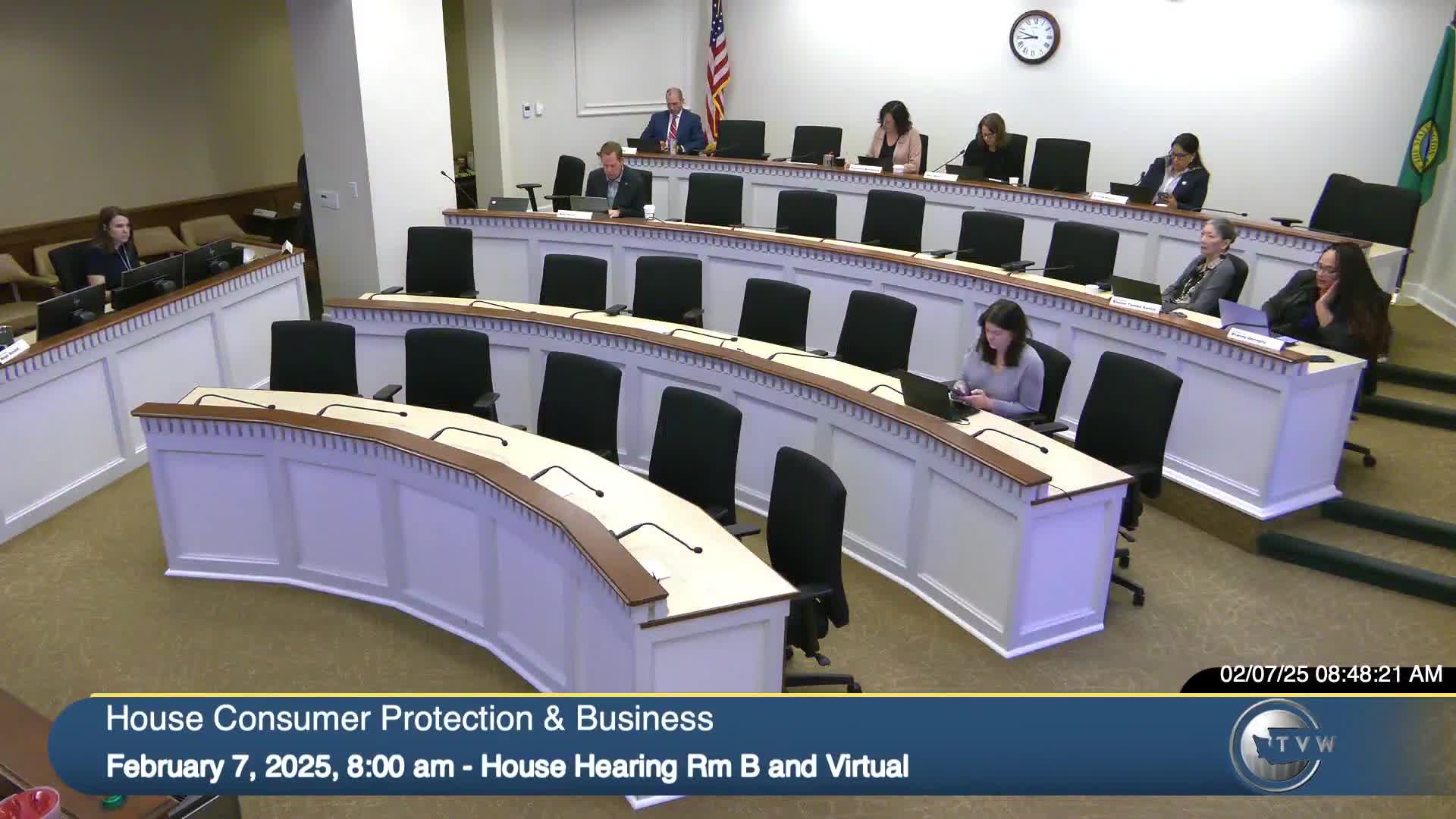Committee hears HB 1516 to study insurance barriers for permanently affordable homeownership units
Get AI-powered insights, summaries, and transcripts
Subscribe
Summary
House Bill 1516 would direct the Office of the Insurance Commissioner to study insurance options and actuarial differences for permanently affordable homeownership units, including limited-equity condominiums and community land‑trust models.
House Bill 1516 would require the Office of the Insurance Commissioner (OIC) to study how projects that develop permanently affordable homeownership units might use different insurance coverage options or approaches to reduce costs tied to condominium construction‑defect liability while maintaining access to appropriate coverage.
Megan Mulvihill, committee staff, said the bill responds to a 2024 OIC report that identified three drivers of high insurance costs: overall market conditions for property and casualty insurance, property characteristics of affordable housing, and perceived risk profiles of housing providers serving extremely low‑income households. HB 1516 would direct OIC to consult nonprofit and government housing providers, insurers and associations, gather relevant findings from studies issued on or after Dec. 31, 2017, and deliver a report to the legislature by Dec. 31, 2025 that includes an actuarial analysis of how condominium construction‑defect liability risk pools for nonprofit and government entities may differ from other condominium production and ownership models.
Rory Payne Donovan of the Office of the Insurance Commissioner said the OIC supports the study and asked for a minor amendment to allow the office to collect certain data and contract for actuarial and consulting services to complete the analysis.
Housing‑development witnesses urged the study. Ethan Robinson of Habitat for Humanity Seattle King & Kittitas Counties said nonprofit and limited‑equity ownership models are an important entry point for first‑time buyers and that insurance costs have become a major barrier: "For organizations like Habitat, insurance costs present an immense barrier to creating permanently affordable homeownership opportunities at greater scale and requiring increasingly creative financing for these tremendous upfront costs," he said.
Bill Clark of Washington Realtors summarized the policy tradeoffs: a prior Department of Commerce study identified the statutory implied warranty for condominiums as the principal reason developers avoid condominium construction, and limited‑equity nonprofit models nonetheless pay insurance costs similar to market‑rate condos. Clark said HB 1516 is intended to determine whether the ownership model should be treated differently by insurers and whether the OIC can identify paths to lower insurance costs for nonprofit developers.
Victoria O'Banion of the Northwest Cooperative Development Center and Brady Nordstrom of the Housing Development Consortium described specialized ownership and financing models (limited equity co‑ops, community land trusts, deed‑restricted ownership) and supported using the bill’s inclusive definition of permanently affordable homes to ensure the study covers those models.
Representative Natasha Hill, prime sponsor, said HB 1516 complements other bills that address condominium liability and that both kinds of changes — statutory warranty reform and an insurance‑market study — are needed to expand permanently affordable homeownership options.
Attorney Bill Cornell, who represents builders, said insurers and builders have largely declined to underwrite condominium projects in Washington because of liability parameters in the condominium act, and that the study is an appropriate first step toward finding solutions that preserve building standards and consumer protections while attracting carriers and builders back into the condominium market.
Members asked whether prior studies covered similar ground; staff confirmed OIC published a 2024 report and agreed to follow up with legislators on overlaps with previous work and on whether any of the study data might be subject to Public Records Act protections or trade‑secret exemptions. The bill requires the actuarial analysis and a legislative report by Dec. 31, 2025.
Why it matters: Witnesses said high insurance costs hinder construction of ownership products that are typically less expensive than townhomes or single‑family homes and are an important pathway to long‑term stability for first‑time buyers. Proponents argued a targeted study and actuarial analysis could identify market and regulatory changes to improve insurance access and lower premiums for nonprofit, limited‑equity and permanently affordable homeownership models.
What’s next: OIC indicated support and requested a narrow amendment to allow data collection and contracting for actuarial services; the committee closed the public hearing without taking a vote.
